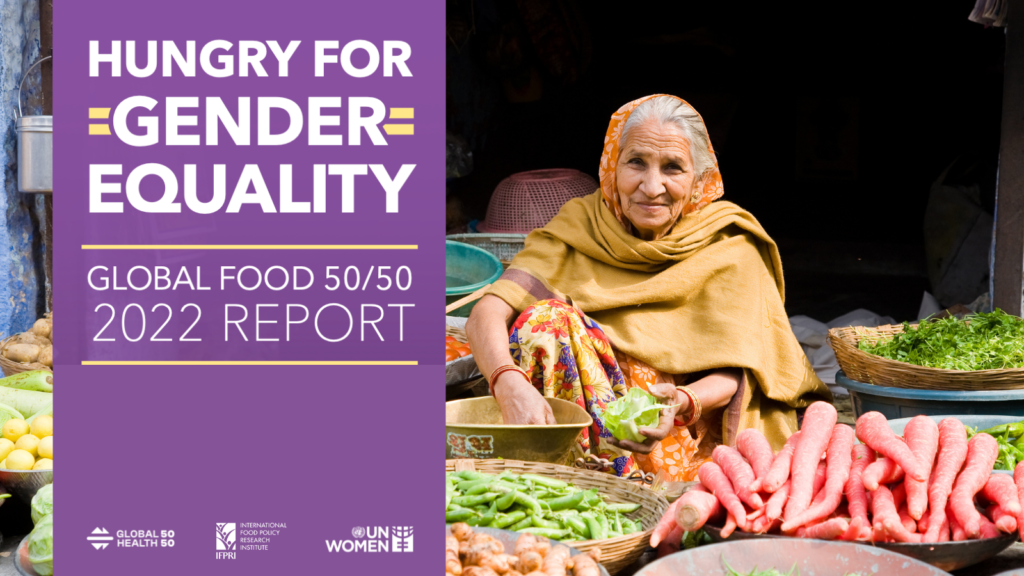
Across the world, populations are facing severe threats and rising inequalities due to a combination of climate change, environmental degradation, the COVID-19 pandemic and conflict. Food systems, as a result, are in crisis and people are increasingly feeling the impact on their everyday lives. Gender inequalities are woven through food systems, and contribute to unjust food production, access and consumption. Women, historically and now, have less access to healthy food, land ownership and resources for food production than men. Globally, the gap between men’s and women’s hunger has widened with food insecurity now affecting 150 million more women than men.
Global food systems organizations are working to address some of the critical issues facing populations’ access to food and nutrition. The second annual Global Food 50/50 Report assesses whether and how such organizations are integrating gender and equality considerations in their work. It reviews the policies and practices of 51 organizations as they relate to two interlinked dimensions of inequality: inequality of opportunity in career pathways inside organizations and inequality in who benefits from the global food system.
The primary aim of the Global Food 50/50 Report is to encourage food systems organizations to confront and address gender inequality within their organizations and governance structures, and in their programmatic approaches across food systems. A second aim is to increase recognition of the role that gender plays in who runs and benefits from food systems for everybody: women and men, including transgender people, and people with nonbinary gender identities.
The 2022 report shows that gender and geographic diversity are severely lacking in the boards of major global food organizations, with leadership positions dominated by men from the global north. This matters because representation from a narrow section of the global population will not result in policies and programmes that meet the needs and interests of all people, across all regions, including women. The review of board composition of the 24 organizations that were included in the analysis of board members showed that more than 70% of board seats are held by nationals of high-income countries. Just 8% of board seats are held by women from low- and middle-income countries.


However, there are indications of progress towards more inclusive organizations. Our findings show an increase in women board chairs from 24% in 2021 to 36% in 2022. More organizations are publishing board diversity policies—policies were found in 30% of organizations, a 10% increase since 2021. Moreover, the review located five new board diversity policies across the sample. A high proportion of organizations (49/52) have made formal and public commitments to gender equality and this has increased since 2021. In 2022, there was an increase of five organizations with gender-transformative programmatic approaches, from 60% to 70% and a decrease in the number of organizations with gender-blind approaches.

Despite some advances among some global food systems organizations, the sector has a long way to go to achieve gender equality in the boardroom, in the workplace and in who benefits from their work. The data in this report can equip leaders at all levels—from communities to workforces to boards—to take action, drive change, measure progress, and hold those in power accountable to their commitments to advance gender equality and transform food systems. A fairer, more gender-equal system will be best placed to end hunger, poverty, and inequality around the world.
Suggested citation: Global Health 50/50, the International Food Policy Research Institute, UN Women, ‘Hungry for Gender Equality: The Global Food 50/50 Report 2022’, Washington D.C.: 2022. https://doi.org/10.56649/WIQE2012